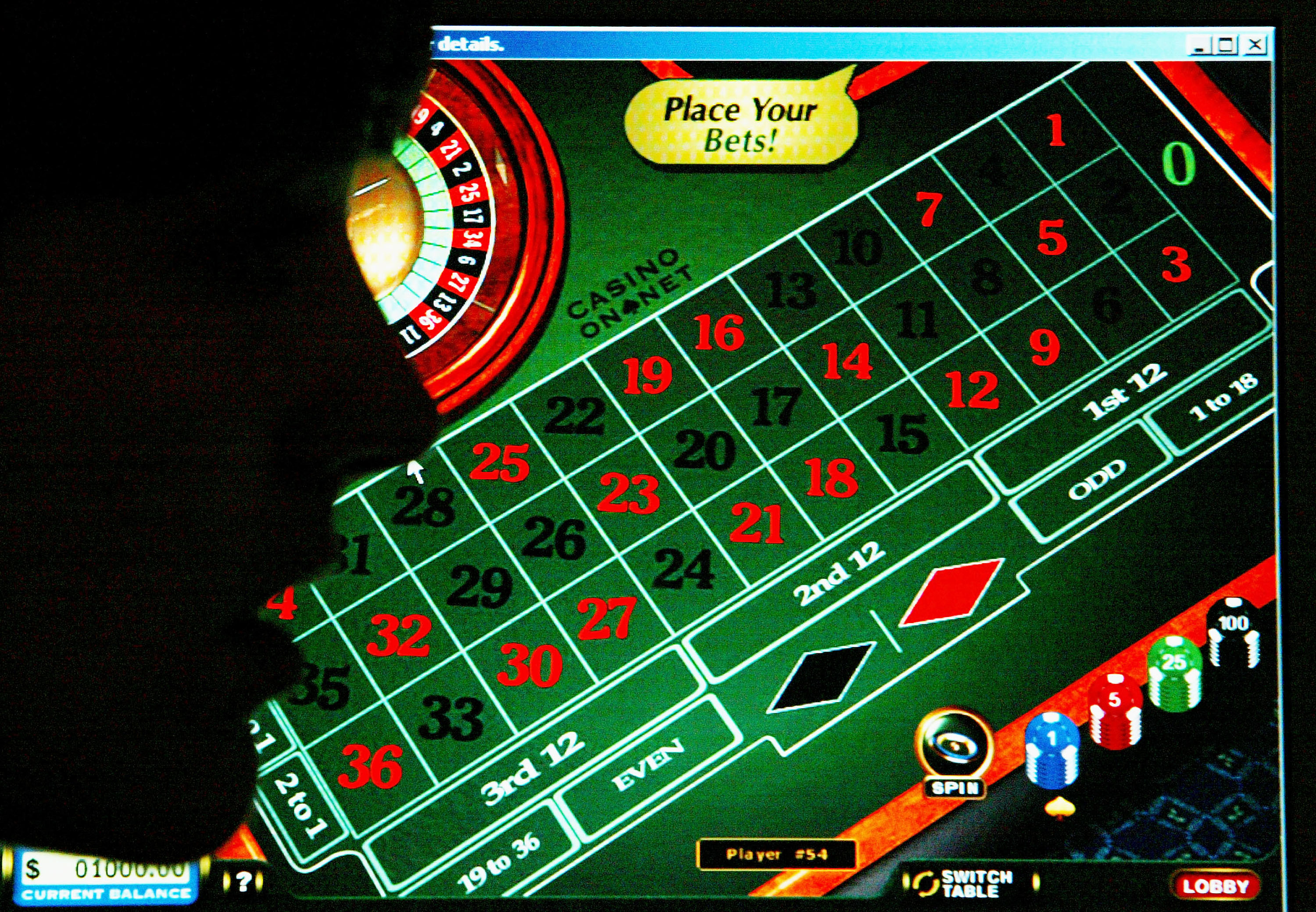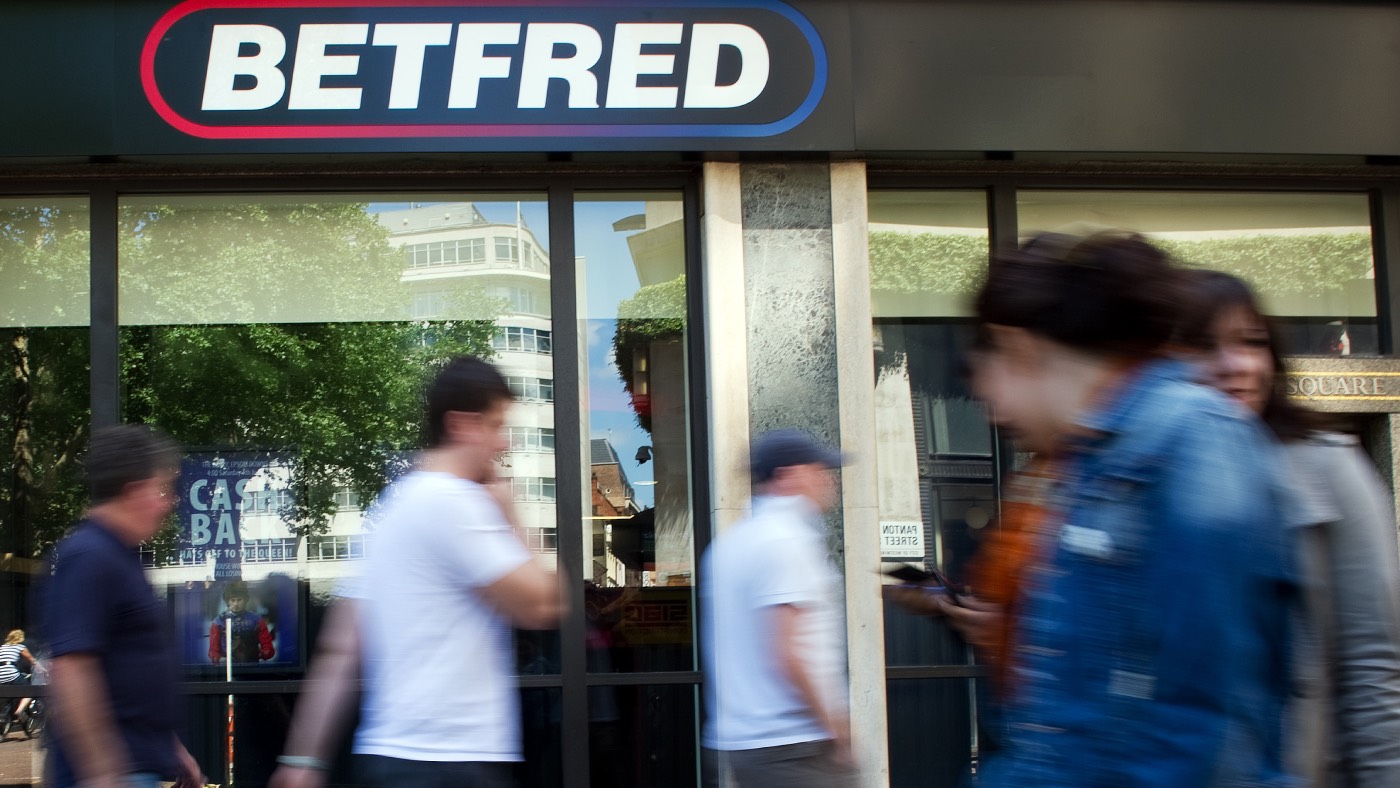New rules on fixed-odds betting machines explained
Government sets £2 cap despite warnings over job and tax revenue losses

A free daily email with the biggest news stories of the day – and the best features from TheWeek.com
You are now subscribed
Your newsletter sign-up was successful
The maximum stake on a fixed-odds betting terminal is to be reduced from £100 to £2, following a lengthy government inquiry.
Punters in Britain’s betting shops can currently stake up to £100 every 20 seconds on electronic casino games such as roulette, with the betting machines, or FOBTs, dubbed the “crack cocaine of gambling”.
Sports Minister Tracey Crouch said cutting the maximum bet "will reduce harm for the most vulnerable".
The Week
Escape your echo chamber. Get the facts behind the news, plus analysis from multiple perspectives.

Sign up for The Week's Free Newsletters
From our morning news briefing to a weekly Good News Newsletter, get the best of The Week delivered directly to your inbox.
From our morning news briefing to a weekly Good News Newsletter, get the best of The Week delivered directly to your inbox.
But the cap will come as a “major blow” to bookmakers, who say it will lead to job losses, the London Evening Standard reports.
So how have FOBTs come to dominate the UK’s gambling industry and what effects will the new cap have?
What role do FOBTs play in the gambling industry?
In terms of revenue, FOBTs have traditionally punched well above their weight. Although they account for just under 20% of all gaming machines - a category that includes fruit machines and so-called one-armed bandit slot machines - they account for 66% of machine revenue, Gambling Commission statistics show.
A free daily email with the biggest news stories of the day – and the best features from TheWeek.com
FOBTs brought in a gross yield of £1.8bn between October 2015 and September 2016, and their importance to the industry cannot be overstated. FOBTs are the leading source of revenue for high-street bookmakers including Ladbrokes Coral and William Hill, the Financial Times reports.
The government report acknowledges that FOBTs are important to the economic viability of many of the UK’s betting shops, which employ a total of around 53,000 people.
Why are gambling activists concerned?
Unlike fruit machines and traditional machine games, the fast pace and high stakes of FOBTs made it easy to part with hundreds of pounds in minutes.
“The combination of addictive and compulsive gaming forms and higher playing costs available on the high street is a potent mix,” the Campaign for Fairer Gambling (CfFG) argued in a report that links the proliferation of FOBTs - following the liberalision of gambling laws in 2005 - to an increase in betting addiction.
According to a report in The Times last year, a core of 300,000 “problem gamblers” accounted for about 40% of the £11bn lost on FOBTs - an average of almost £15,000 each - between 2008 and 2016.
Activists claim that FOBTs encourage loss-chasing behaviour and ensnare addicts, “though the industry vigorously contests this claim”, says the Financial Times.
The Association of British Bookmakers (ABB) says that six million people use betting shops every year and that “the vast majority” of them gamble responsibly.
"The average amount lost on a betting shop gaming machine in a session is just £9.17,” an ABB spokesperson said, according to Sky News.
The locations of FOBTs and the socio-economic profile of users has triggered concerns that the machines are being used to prey on the already financially vulnerable.
Players “are more likely to be young men (aged under 35), unemployed and/or from low-to-middle income households”, the CfFG said in an article on the PoliticsHome website.
A 2014 mapping project found that the most deprived areas of England contained more than twice as many betting shops as the least deprived.
What has been the reaction to the cap?
Matt Hancock, the digital, culture, media and sports minister, said that the Government had chosen to “take a stand”, adding: “These machines are a social blight and prey on some of the most vulnerable in society, and we are determined to put a stop to it and build a fairer society for all.”
Labour's deputy leader, Tom Watson, told BBC Radio 4’s Today programme that he was “absolutely delighted” about the new cap, which he said would “help alleviate some of the terrible misery caused by problem gambling in Britain”.
Watson added: “The great tragedy of this is that for five years now, pretty much everyone in Westminster, Whitehall and in the country has known that these machines have had a very detrimental effect in communities up and down the land, and the bookmakers have chosen to take a defiant approach and try to face down Parliament with a very aggressive campaign.”
The outlook from the gambling industry now appears bleak.
Betting giant William Hill, which the BBC says generates just over half its retail revenues from FOBTs, warned that its full-year operating profit could fall by between £70m and £100m. Around 900 of its shops may face closure as a result, the company said.
Betfred said it may also be forced to close up to 900 shops, which could lead to some 4,500 job losses.
In a letter to members of the Home Affairs Sub-Committee, Betfred's managing director, Mark Stebbings, warned that “much upset and heartache” would be caused by the new measures.
Betting executives and some Cabinet ministers gave also voiced concerns about the potential loss of tax revenue, Sky News reports.
However, The Guardian says this shortfall is expected to be made up for by an increase in duty applied to online gambling, to be detailed in the next Budget.
-
 The environmental cost of GLP-1s
The environmental cost of GLP-1sThe explainer Producing the drugs is a dirty process
-
 Greenland’s capital becomes ground zero for the country’s diplomatic straits
Greenland’s capital becomes ground zero for the country’s diplomatic straitsIN THE SPOTLIGHT A flurry of new consular activity in Nuuk shows how important Greenland has become to Europeans’ anxiety about American imperialism
-
 ‘This is something that happens all too often’
‘This is something that happens all too often’Instant Opinion Opinion, comment and editorials of the day
